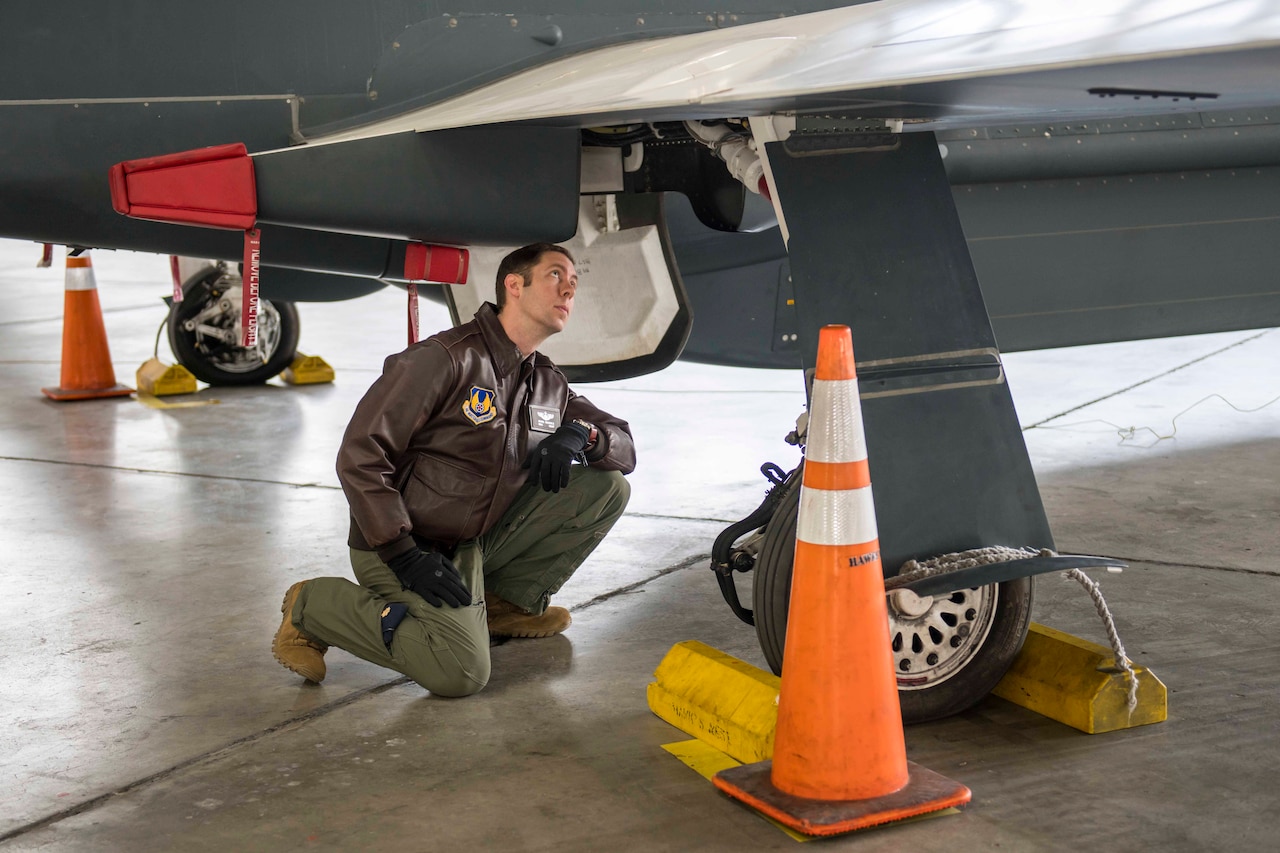April 8, 2020 | BY Giancarlo Casem
Though much of the workforce has been affected by the
COVID-19 pandemic and the social distancing it requires, the 412th Test Wing's
flight test squadrons at Edwards Air Force Base, California, are working
through the challenges to accomplish their missions.
The 452nd Flight Test Squadron has worked through the
challenges of teleworking and modified work schedules to keep its fleet of RQ-4
Global Hawks flying and meeting mission requirements.
The 452nd is also the combined test force for the Global
Vigilance combined task force, said Air Force Maj. Marc Nichols, 452nd FLTS
assistant director of operations. "Here, we're involved with testing
systems and avionics upgrades," he added. "We also engage in foreign
military sales testing; we hope to deliver an aircraft to [South Korea] this
week."
The Global Hawk is a remotely piloted, high-altitude,
long-endurance aircraft. With a wingspan of more than 130 feet, the aircraft is
able to attain a flight ceiling of 60,000 feet. Its main mission is to provide
intelligence, communications, surveillance and reconnaissance using a multitude
of sensors to combatant commands worldwide, Nichols said.
The COVID-19 pandemic meant that the 452nd FLTS had to
devise plans to ensure team members were as safe as possible yet still be able
to complete their test missions. The 452nd's unique mission allows the unit to
execute missions with personnel being separate from each other, noted EmmaLee
Shenberger, a test conductor and operations engineer with the 452nd FLTS.
"The mission setup for the Global Hawk is unique in the
sense that the 452nd has the ability to execute missions in a modular
fashion," Shenberger explained. "At the 452nd, we are already
accustomed to executing missions in an 'isolated' arrangement, simply because
the mission personnel are not all collocated during a Global Hawk flight. With
this capability, the 452nd is able to execute missions with all required flight
personnel participating while also maintaining the appropriate separation deemed
mandatory during this pandemic."
The Global Hawk combined task force team understands the
importance to keep their missions going and showed no hesitation when it came
time to be flexible and adapt to recent changes, Shenberger added.
"By 'hustling' our personnel and preparing them for
teleworking, our squadron stayed competitive," she said. "We were and
are still prepared for what could happen next, while also continuing our
contribution and work for the warfighter."
"Although with this transition there have been few
growing pains," she continued, "we are patient with each other, we
have kept faith, and work to communicate with each other to the best of our
abilities, and we trust each other. We have trust in each other knowing that we
all share the same objective, and that is to support the warfighter."
Despite the challenges, the team has been able to execute
its missions, ensuring that the warfighter and allied nations are able to use
systems and equipment such as the Global Hawk.
"It's definitely been a challenge," Nichols said.
"We were poised to start executing with as much telework as possible when
we first realized it was becoming a threat to the Southern California area. We
moved people into a telework posture, but we're able to maintain our mission
set, so we were able to launch this [Global Hawk] aircraft last week and
complete the testing that was required before we were going to send it back to
Beale Air Force Base."
During that time, the team also was able to complete testing
on a separate program that is under engineering review.
"We were all ready to proceed with what needed to
happen in order to keep as few people in the office, and as much social
distancing as required while at the same time executing the missions with as
much mitigation as possible," Nichols said. Other safety measures included
sanitation procedures between pilots and sensor operators when handing off
control of the aircraft at the Mission Control Element.
Nichols said that Edwards Air Force Base leaders have been
outstanding in terms of being able to help the squadron accomplish its mission
while keeping their people safe.
"They said people are the priority," she said.
"Test is still very important, obviously, but all the way down from Air
Force Materiel Command and Air Force Test Center level leadership to the wing
and down to the squadron commanders; they've given the commanders leeway to
make their decisions with the posture of 'Keep everybody safe, but keep getting
the mission done.' The adversaries are out there — it's not just the virus, but
people are going to be watching to see how the 412th Test Wing executes in the midst
of all this, I think we'll have them on their back foot."
"It makes us feel good," she continued. "It's
nice that we're able to keep on doing the mission. COVID-19 is a complex
situation that we're all trying to deal with, and I'm just happy knowing that
our adversaries know that we're still out there competing with them."
(Giancarlo Casem is assigned to the 412th Test Wing.)









No comments:
Post a Comment